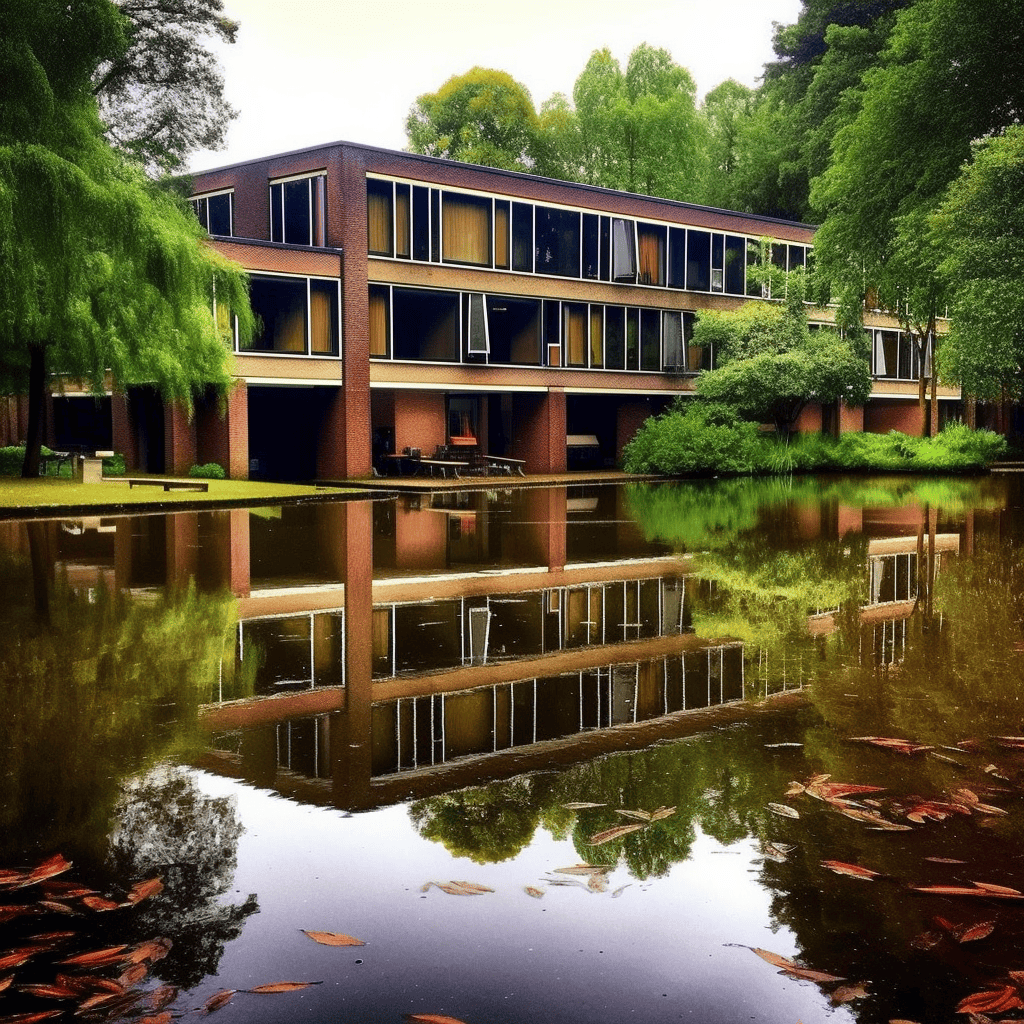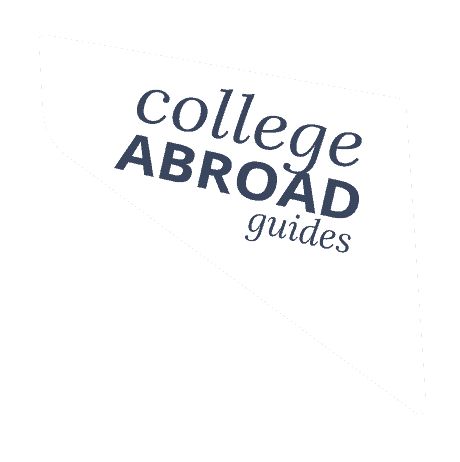Choosing Between University Colleges in the Netherlands

- Originally published
- Last updated on November 14th, 2023 at 03:09 pm
Table of Contents
University colleges differ in meaningful ways, from their concentration areas, to how long you’ll be guaranteed a dorm room. So how do you go about choosing between university colleges in the Netherlands?
While all will have an approach centered on academic rigor, broad learning across disciplines, and small-scale community living, the ~900 students at Amsterdam University College might feel enormous compared to the ~200 at Venlo.
Two primary areas to consider are residential life and the differences between programs themselves.
Residential Life Differences
The idea of autonomous, adult first-year students living independently is more profound than in the U.S. This impacts housing concretely.
Some parents of students who are unsuccessful finding housing before the semester starts may feel obligated to stay in town with their student, help navigate private applications, renting cars, and moving gear.
Other students may handle housing on their own. Do you want to be self-sufficient and find your own friends? Your own housing? Your own friends to then find housing with? Or would you prefer the university handle this? It’s a common stressor, and students have strong feelings on both sides of the debate.
University colleges all have a more residential approach than their traditional counterparts, but sometimes that just means offering a common room and a study association that hosts dinners. Here are the residential requirements of the UC schools:
| University College | Residency Requirement |
| University College Roosevelt | Yes, all three years |
| University College Utrecht | Yes, two years |
| University College Maastricht | No |
| University College Tilburg | No |
| Amsterdam University College | Yes, all three years |
| Leiden University College The Hague | Yes, two years |
| University College Twente | Yes, one year |
| Erasmus University College | Yes, one year |
| University College Groningen | Yes, one year |
| University College Venlo | No |
| University College Fryslân | Yes, one year |
Program Differences Between University Colleges of the Netherlands
What Programs Do University Colleges Offer?
A mixed discipline program may mean lots of freedom to construct your studies. Alternatively, it may look more like a high school, with limited course selection and some small choices – but a mostly pre-built journey through the program set by the university for all its liberal arts students.
Some UCs appeal better to self-starters.
Others will appeal to those desiring more structure.
Erasmus University College, University College Roosevelt, and University College Utrecht offer the most freedom in course selection. They require coursework across disciplines but allow students leeway to choose which courses these will be.
Programs are also differentiated from each other by program themes and specialties offered (some students will find their preferred discipline and interests are represented well across classes), or by teaching approach (problem-based learning and project-based learning are two popular methods). After all, no one needs extensive freedom in course selection when their program offers topics they love all the way through.
University College Program Specialties
Different approaches and major areas offered are listed here:
| University College | Known For | Major Areas |
| University College Roosevelt | Citizenship, music, pre-med | Social Sciences; Humanities; Science, Engineering; Combination Major |
| University College Utrecht | Philosophical approach | Social Sciences; Humanities; Science; Combination Major |
| University College Maastricht | Problem-based learning, Research themes of (1) Liberal Arts Education in Europe in the 21rst century (2) Politics from Below (3) EU as a Foreign Policy Actor (4) Psychology, Science, & Society | Social Sciences; Humanities; Science; Combination Major |
| University College Tilburg | European focus, Social Challenges | Social Sciences; Humanities; Business & Economics; Law; Neuroscience |
| Amsterdam University College | (1) Energy, Climate, and Sustainability, (2) Life, Evolution, Universe (3) Health and well-being (4) Information, Communication, Cognition (5) Social Systems and (6) Cities and Cultures | Social Sciences; Humanities; Science; Combination Major |
| Leiden University College The Hague | Global Challenges, Peace, Justice, Sustainability | Earth, Energy, & Sustainability; Global Public Health; World Politics; International Justice; Governance, Economics, & Development; Human Diversity: Culture, History, Society |
| University College Twente | Technology Meets Social Sciences / New Engineering | Technology & Liberal Arts & Sciences |
| Erasmus University College | Problem-based learning, Economics & Business | Social Sciences; Humanities; Life Sciences; Economics; Combination Major |
| University College Groningen | Project-based learning, increased breadth even for liberal arts programs | Social Sciences; Humanities; Science; Combination Major |
| University College Venlo | Problem-based learning, Health, Nutrition, and Business | Social Sciences; Life Sciences; Combination Major |
| University College Fryslân | UN Agenda for Sustainable Development | Global Responsibility & Leadership |
Specialty areas are a great way to figure out if your favorite university college can accommodate your mix of desired coursework.
Tips for Assessing a University’s Specialties
While all the schools allow students to immerse themselves in a small-scale, intimate, and liberal arts education, they’re not all good at getting every student ahead in their chosen field.
For students who know what they want to study, a school’s program is a good starting point for identifying the best university college in the Netherlands for you.
Can I Use American Financial Aid to Attend a UC in the Netherlands?
The United States’ Free Application for Federal Student Aid (FAFSA) website updates its list of schools participating in the U.S. federal loan program so students can see where they can use subsidized and unsubsidized loans for study in an international degree program. International schools do not participate in the Pell Grant program, so grants are unavailable abroad. Currently, the university colleges participating are:
- University of Amsterdam (Amsterdam University College)
- University of Maastricht (University College Maastricht, University College Venlo)
- University of Utrecht (University College Roosevelt, University College Utrecht)
Additionally, some limited scholarships are available to students with both stellar academic records and financial need from outside the EU.
These can be found in the “How to apply” section for each school. They vary widely from no school funding available to multiple, multi-year scholarships awarded each year. There are also independent sources of grant support for students that all students should consider.
Get a Degree in the Netherlands
Get the details about a university degree in the Netherlands, then explore more university college options, from University College Utrecht to University College Roosevelt. There are eleven university colleges, and with lots of differences between them, checking out the program differences and student perspectives can help you find the one that you can call home.
Related Posts

Jessica Share
Jessica is the writer, Ph.D., and mom-of-an-abroad-student-in-the-UK at the helm of College Abroad Guides. When she's not asking college students where the coolest place to hang out in their city is, she's figuring out how she can make $60 imported Greek oregano potato chips and £50 British bacon potato chips appear on her doorstep for the cost of a local bag of Lay's.





